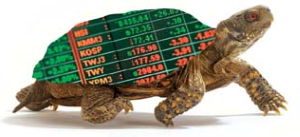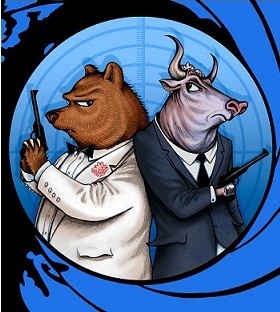 Many aspiring Forex traders believe they can learn to trade the Forex market without seeking external assistance. The allure of trading lies in the potential for an independent lifestyle and personal freedom, but achieving success in this field requires time and knowledge. This knowledge must be acquired from reliable sources. Unfortunately, the independent mindset associated with trading often leads new or struggling traders to believe that they can self-teach and profitably trade the Forex market.
Many aspiring Forex traders believe they can learn to trade the Forex market without seeking external assistance. The allure of trading lies in the potential for an independent lifestyle and personal freedom, but achieving success in this field requires time and knowledge. This knowledge must be acquired from reliable sources. Unfortunately, the independent mindset associated with trading often leads new or struggling traders to believe that they can self-teach and profitably trade the Forex market.
While it is possible for some individuals to effectively self-teach trading, it is not the case for the majority. Even those who manage to self-teach profitable trading strategies usually go through years of frustration, losing substantial amounts of money and time in trial and error with ineffective trading systems. Fortunately, there is a straightforward approach to significantly reduce the likelihood of such emotionally and financially painful experiences: learn from a respected trading mentor who can share their knowledge and years of experience with you. Learning from someone already successful in the trading business is undoubtedly the best way to acquire trading skills.
The Nature vs. Nurture Debate in Trading
 The ongoing debate surrounding the teachability of trading essentially centers around the age-old psychological question of “nature vs. nurture.” In other words, is trading a skill that can be imparted to individuals with no prior experience, or is it an innate talent that one is either born with or lacks? This discussion on whether trading can be taught or is an inherent gift gained popularity through the renowned experiment conducted by Richard Dennis and Bill Eckhardt in the mid-1983. The two had a persistent disagreement regarding whether traders are born or made. While Dennis believed in his ability to teach people to become exceptional traders, Eckhardt attributed genetics as the determining factor.
The ongoing debate surrounding the teachability of trading essentially centers around the age-old psychological question of “nature vs. nurture.” In other words, is trading a skill that can be imparted to individuals with no prior experience, or is it an innate talent that one is either born with or lacks? This discussion on whether trading can be taught or is an inherent gift gained popularity through the renowned experiment conducted by Richard Dennis and Bill Eckhardt in the mid-1983. The two had a persistent disagreement regarding whether traders are born or made. While Dennis believed in his ability to teach people to become exceptional traders, Eckhardt attributed genetics as the determining factor.
The Significance of Learning from a Mentor
Ironically, when it comes to Forex currency trading, many individuals believe they can learn without the guidance of a successful professional trader. Despite the widely known fact that only around 10% of people who attempt trading actually become professionals, with the remaining 90% either giving up or enduring years of arduous trial and error, most people still hesitate to seek assistance from a seasoned trader or mentor.
If trading is undeniably challenging and this knowledge is prevalent, why do so few traders willingly accept help from those who have already achieved success? The answer is simple: ego, arrogance, and ignorance, individually or combined. However, it is important to realize that ego and arrogance hold no value in the market. In fact, arrogance can be detrimental to a trader’s success. The very refusal to seek guidance from a professional trader is often the underlying reason for failure—an overflow of arrogance.
In the “real world,” nearly every job requires on-the-job training from experienced professionals. It is safe to say that most “regular” jobs are mentally easier compared to the complexities of consistently making money in the Forex market. Just as any other skill demands training from a professional in the respective field, aspiring Forex traders need training from an experienced Forex trader to succeed. While some individuals manage to learn trading on their own, their path is undoubtedly more challenging and filled with numerous pitfalls compared to those who open themselves up and accept the guidance of a professional trader.
Price Action: More than a Set of Rules
 While the example of Richard Dennis and the “turtles” demonstrated that trading can indeed be taught, there is a limitation when it comes to learning a rigid set of trading rules. Strict trading rules may prove effective in a bullish or bearish market but can fail when confronted with sideways market conditions. This is where learning price action becomes invaluable, as it offers a unique perspective on the market that enables profitability in all market conditions. Price action education goes beyond teaching a fixed set of rules that only work in bullish markets; it equips traders with the ability to decipher price movements and identify specific price action setups that can yield profits across diverse market conditions. Therefore, price action truly stands as the most comprehensive method for learning how to trade.
While the example of Richard Dennis and the “turtles” demonstrated that trading can indeed be taught, there is a limitation when it comes to learning a rigid set of trading rules. Strict trading rules may prove effective in a bullish or bearish market but can fail when confronted with sideways market conditions. This is where learning price action becomes invaluable, as it offers a unique perspective on the market that enables profitability in all market conditions. Price action education goes beyond teaching a fixed set of rules that only work in bullish markets; it equips traders with the ability to decipher price movements and identify specific price action setups that can yield profits across diverse market conditions. Therefore, price action truly stands as the most comprehensive method for learning how to trade.

